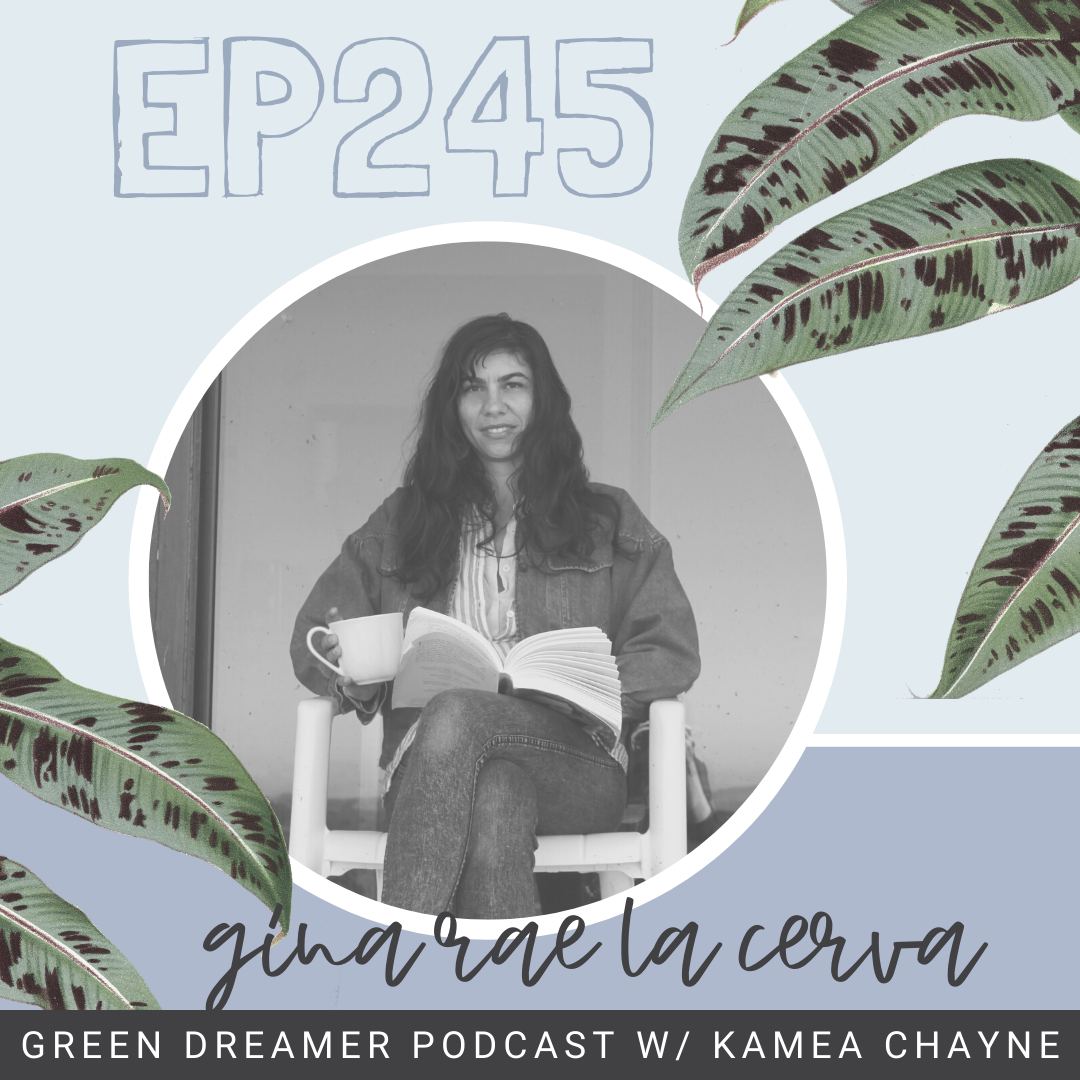Gina Rae La Cerva: How our collective shift from eating wild to domesticated foods transformed our landscapes (ep245)
Gina Rae La Cerva (@feastingwild) is a geographer, an environmental anthropologist, an award-winning writer, and the author of the new book Feasting Wild: In Search of the Last Untamed Food, where she traces our relationship to wild foods and shows what we sacrifice when we domesticate them—including biodiversity, Indigenous knowledge, and an important connection to nature.
In this podcast episode, Gina Rae sheds light on how colonialism has disrupted and shifted our relationship with wild nature and wild foods—and by extension transformed our landscapes; the line between building reciprocity in relationship with our living world versus commodifying the wild; and more.
To start, get a glimpse below into the conversation between Gina Rae and Green Dreamer Podcast's host, Kamea Chayne.
Musical feature: Trust The Sun by The Fruitful Darkness by Trevor Hall (@TrevorHallMusic)
“From the beginning, conservation was wrapped up in privilege—there was this idea that certain people could have access to this resource over others.”
If you feel inspired by this episode, please consider donating a gift of support of any amount today!
This is a conversation on Green Dreamer with Kamea Chayne, a podcast and multimedia journal illuminating our paths towards ecological regeneration, intersectional sustainability, and true abundance and wellness for all. This preview has been edited for clarity. Subscribe to Green Dreamer Podcast on Apple Podcasts, Spotify, or any podcast app to stay informed and updated on our latest episodes!
On how our relationship with wild nature has shifted:
“For 99% of human history, we hunted and gathered, and that's how we sustained ourselves. But now, most people will not eat anything that is not entirely domesticated.
So I was very curious about this shift, where wild nature was something that was subsistence for so long and now is sort of something that has become a luxury.
To me, that was a very interesting way of looking at our relationship to nature in general, where now we basically have to have enough money and time to go out into wild nature, and we treat it as this luxury where we go hiking or camping versus the experience of actually subsisting off the land, which fewer and fewer people do."
On conservation being rooted in injustice:
"Some of the earliest forest laws in the world were passed by kings in the tenth and eleventh centuries because they wanted to protect their supply of wild game meat in the forests of Europe. They prevented people from cutting down the forests, and they had really harsh measures—people who poached animals would have their eyes torn out, they were castrated, sometimes they'd be taken away from the country.
So from the beginning, conservation was wrapped up in privilege—there was this idea that certain people could have access to this resource over others. That's the western model of conservation: keeping people out of these landscapes.
If you look at Indigenous peoples, their presence in the landscape often created more biodiversity. Some of the North American Indigenous peoples' foodways, the ways that they managed the land, actually increased biodiversity.
For instance, they built fish weirs on the East coast, and this actually created a habitat for a lot of different juvenile fish and created marshland. In providing wild foods for themselves, they were actually increasing the abundance of these different wild animals in general."
On humanity undergoing domestication:
"We're not just causing evolution on the planet; we're also impacted by that evolution.
The fact that we no longer eat as many wild foods has impacted our own health in many ways: We're probably no longer as robust as our hunter-gatherer ancestors, and we've kind of undergone our own domestication as we've domesticated the planet and created these new ecological relationships."
On the impacts of domesticating our foods:
“Humans have used nearly 30,000 different species at some point for food and medicine. Today, we rely on just 30, so that's a huge reduction in terms of the biodiversity and the different things we're able to subsist on.
Sixty percent of our diet is made up of just three annual crops, which are rice, wheat, and corn. And 80 percent of our agricultural crops are annuals that must be ripped up and replanted each year.
In terms of the ecology, that's not creating a very diverse ecosystem or agricultural system."
Final words of wisdom:
"As someone who might be a secret, closeted control freak, I often remind myself how little control we have. It's actually quite refreshing to realize that we are part of this magnificent, complex system, and we're sort of these tiny blips of light.
That can feel kind of nihilistic or scary, but it's actually really freeing. It's saying, ‘I'm open to the mystery that encircles us and to taking this 4.5 billion year view of how I got to this moment and this experience and recognizing that we're part of this larger ecology.’
Everything we do is an ecological act, and I think that can be really spiritually liberating. We're part of this vastly complex fabric—this continually evolving system. It's all a process. We are really wild nature experiencing itself."
Podcast Sponsor:
Conscious Step* is a Fairtrade, GOTS-certified organic cotton socks brand that donates to a cause for every pair sold. In addition to having a fun variety of nature-inspired prints, Conscious Step has a variety of causes they support, many of which help to address environmental and social justice—from rainforest and ocean conservation, to access to clean water, education, combatting violence, and more. Check out Conscious Step's organic socks. (*These are referral links to our sponsor. Use our code GREENDREAMER for 20% off.)

